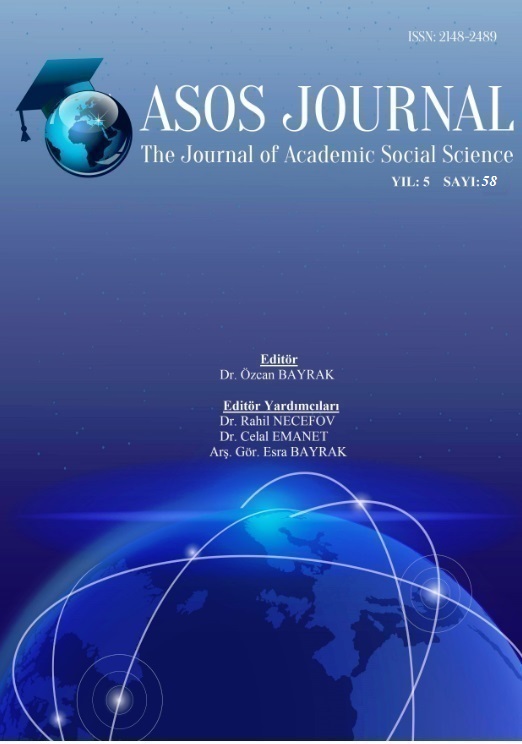Author :
Abstract
Milletlere, varlığını devam ettirmede ve kültürlerini yaşatmada yardımcı unsurlardan biri hiç şüphesiz millî bilinçtir. Mensubu olduğu milleti bilmek, çıkarlarını gözetmek ve karşılıksız bir sevgi hissetmekle ortaya çıkan millî bilinç, o milletin geçmişine vâkıf olmakla da perçinlenir ve güçlenir. Türk hükümdarlarının ortak hasletlerinden biri millî bilinçlerinin ve millet sevgilerinin kuvvetli oluşudur. Bu haslet, dünün bugüne taşınmasındaki rolü ve geçmişteki güçlü tarihle ispat olunmuştur. Bu çalışmanın amacı Selçuklu hükümdarlarının tarihe, kendi tarihlerine olan ilgilerinin ne derece olduğunu, millî bilinçlerini ve farkındalıklarını dönem kaynaklarını incelemek suretiyle ortaya koymaktır. Bunun sonucunda Selçuklu hükümdarlarının diğer hükümdarlar ile konuşma ve mektuplaşmalarında bu bilince sahip olduklarına dair çeşitli cümleler sarf ettikleri, tarihe ve kendi tarihlerine ilişkin birtakım bilgilere vâkıf oldukları görülmüştür. Ayrıca onlar geçmişlerinden güç almış ve geçmişlerini öğrenmeye önem vermişlerdir. Hatta âlimlere ve ilme verdikleri kıymet sebebiyle, kendilerine sunulan kitapların yazarlarını mükâfatlandırmaları, onlara sunulan ve bugün geçmişe dair bilgi edinebildiğimiz tarih kitaplarının da yazılmasında etkili olmuştur.
Keywords
Abstract
National consciousness is doubtlessly one of the elements which help nations continue their existence and cultures. National consciousness, which manifests as knowing your nation, looking after its benefits, displaying an unrequited compassion, is strengthened with being acquainted with the nation’s history. One of the common traits of Turkish rulers the strength of their national consciousness and compassion. It is attested by its role in bringing the past to the present and the powerful history. This study aims to point out to the Seljuk ruler’s national consciousness, awareness, and interest in their own history. The correspondences by Seljuk rulers leads to the conclusion that they uttered certain statements about their historical consciousness and the knowledge they had on their history. Additionally, they were encouraged from it and valued learning their past. Moreover, they rewarded the writers who presented them with their books, which shows us their gratitude to science and scientists, and it contributed to the composition of those sources we have today which tell us about the past.





